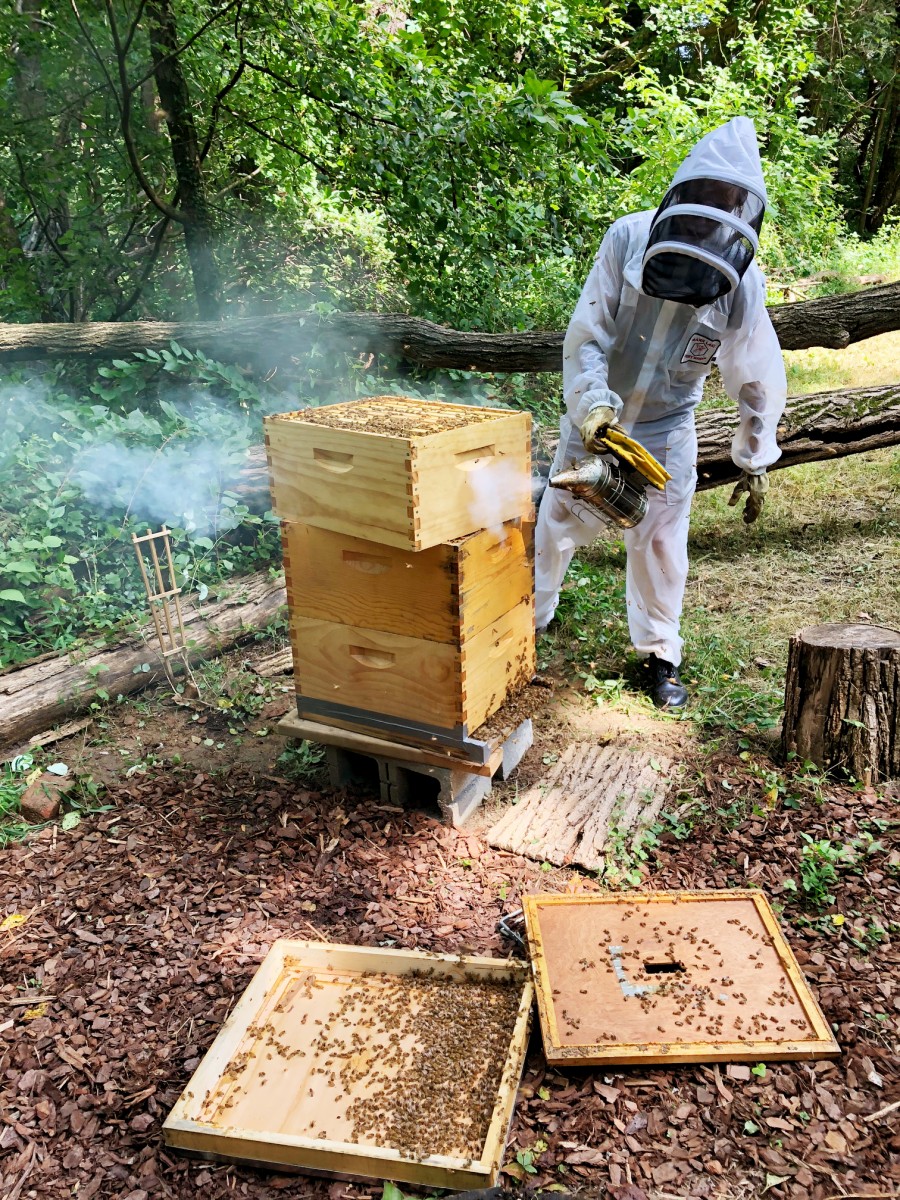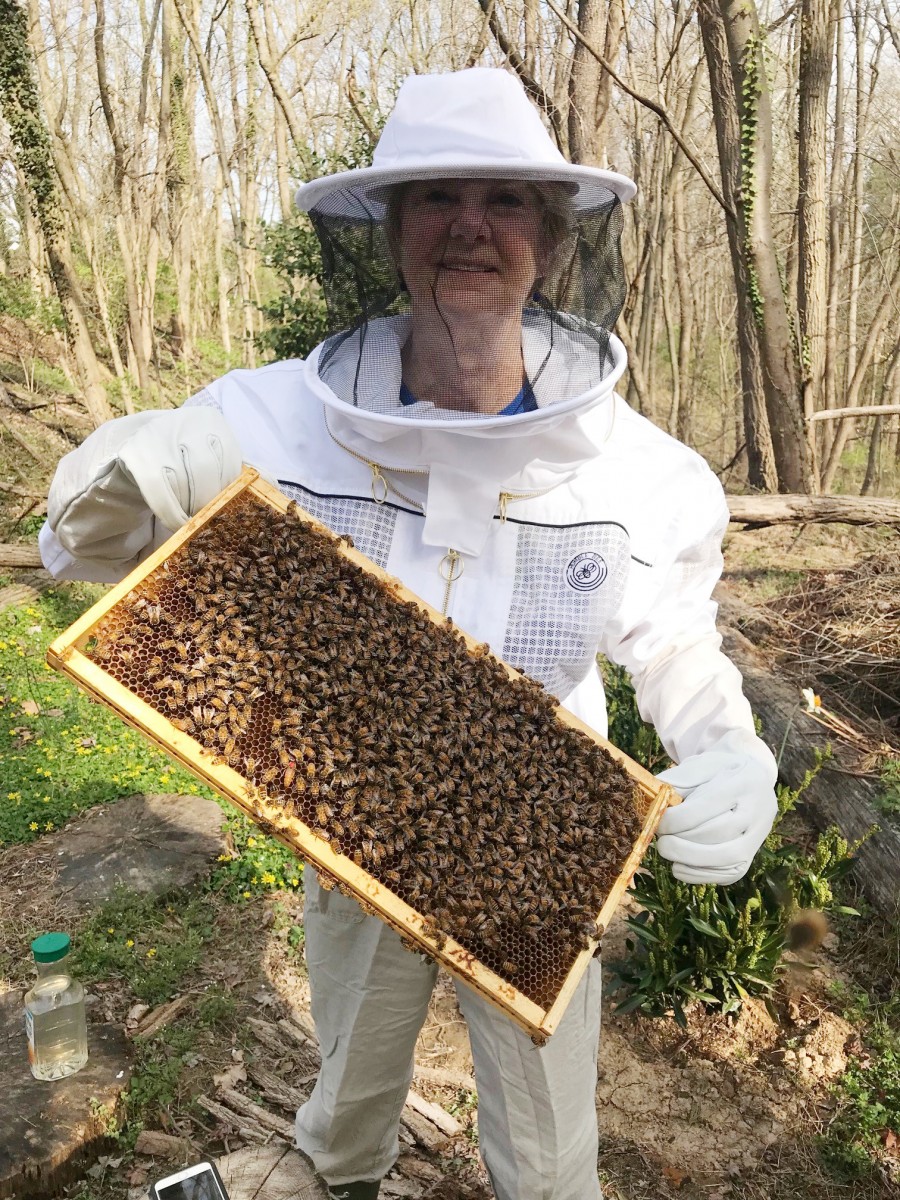Today, Chautauquans can swarm into Smith Wilkes Hall for an un-bee-lievable Bird, Tree & Garden Club talk on beekeeping.
Three beekeepers will present “The Zen of Beekeeping: Backyard Hives for Flowers, Honey and the Environment” at 12:15 p.m. Moday, July 8 in Smith Wilkes Hall, as part of the BTG’s Monarch Moments and More program.
Local beekeeper Bob Ratterman and Maryland-based beekeepers Sharon Metcalf and Stefan LoBuglio will give an overview of bees, how they function within their hives and how Chautauquans can become beekeepers. They will also bring samples of their own honey for Chautauquans to taste.
Ratterman is the sciences coordinator and a professor of biology at SUNY Jamestown Community College. He also serves as vice president of the Chautauqua County Beekeepers Association. He said Chautauqua County is the perfect place for bees.
“In Chautauqua County, the foliage, the flowers, for the bees are really conducive to getting a good honey crop,” he said. “We have forests, we have fields, we have pastures, we have trees.”
Ratterman first delved into beekeeping six years ago when he watched one of his colleagues capture a swarm of bees — a large group of docile worker bees who have been cast off from the original hive — for one of her hives.
He now has five hives and harvests honey from them twice each year — once in early summer and once in October.
Ratterman said his fall harvest is typically larger, fueled by pollen from goldenrod that blooms in late summer.
Metcalf and LoBuglio are visiting Chautauqua from Maryland. Metcalf works as senior director of strategic partnerships and programs in the American University School of Communication, and previously worked at NBC and ABC in Washington, D.C., along with a stint working for President Jimmy Carter’s administration.
LoBuglio works as a justice reform consultant and previously worked in management at prisons in Boston and, more recently, in Montgomery County, Maryland.
The pair met through mutual friends and grew closer through a beekeeping certification course. They both have hives and contribute hive data to research projects conducted by The Best Bees Company in Boston.
Both Metcalf and LoBuglio have visited Chautauqua in the past. Metcalf has given a BTG talk on monarch butterfly migrations, and LoBuglio took interest in the gardens on the grounds when he first visited two years ago.
“Immediately when I got onto the grounds, you see these gorgeous landscapes — the flowers, the gardens, the trees,” LoBuglio said. “It’s such a perfect environment for bees to do their wonderful work.”
Bees do best in environments where there is a diversity of plant life for them to forage, Metcalf said.
“One thing we have found through our research with The Best Bees Company is that bees seem to be thriving in urban and suburban areas because of diversity of plants and gardens,” Metcalf said.
Bees struggle more in the Midwest, where large swaths of land are planted with a limited variety of crops, and fields are sprayed with pesticides that are harmful to bees, Metcalf said.
In Maryland, LoBuglio just combined two of his hives, reducing his total number of hives from four to three. He put one box hive on top of the other, with just a sheet of newspaper with slits in between. Over a few days, the bees will eat through the newspaper and the two hives will get acquainted with one another.
“I had a hive that was relatively weak and a hive that was really strong,” he said. “Rather than have the hive that was weak die out, I was able to put that hive on top of the stronger hive.”
LoBuglio said beekeepers may split or combine hives in order to help them survive.
“Part of the allure of beekeeping is to be very attentive to their cycles and how to work with them.”
Bees are a crucial part of the ecosystem, since they are able to pollinate plants by carrying pollen from one plant to the next as they collect nectar from flowers.
“Pollination is key,” Metcalf said. “One out of every three bites we eat has been pollinated somewhere along the lines by bees.”
At the talk today, the beekeepers will discuss ways Chautauquans can create more pollinator-friendly environments both on the grounds and at their year-round homes.






